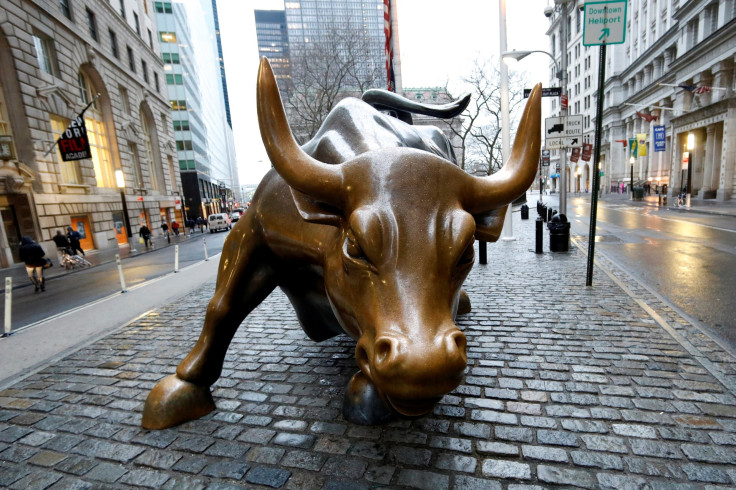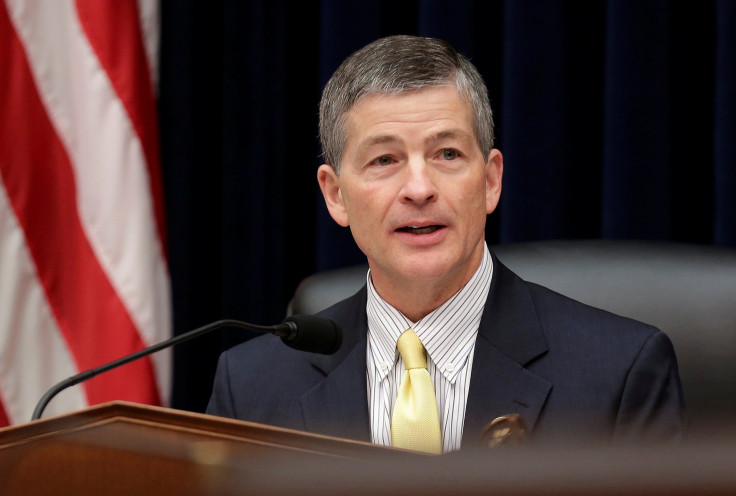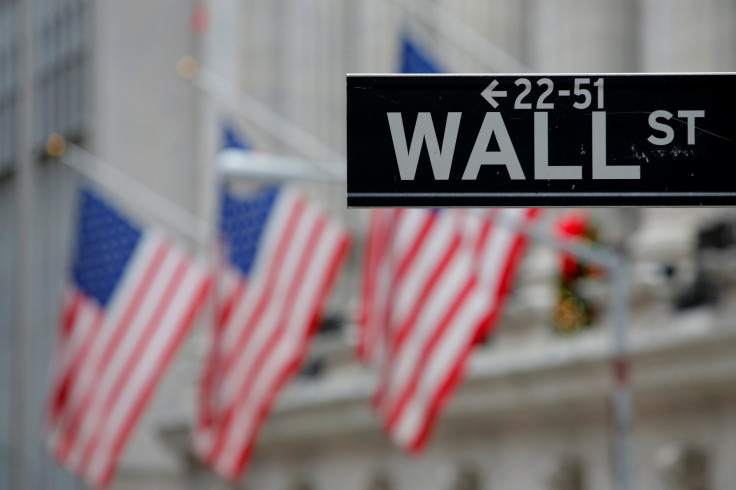While Comey And Trump Feud, Wall Street Moved One Step Closer To Repealing Dodd-Frank

While much of the nation’s attention was focused on James Comey’s account of his interactions with President Donald Trump on Thursday, a key part of the president’s anti-regulatory agenda moved forward in Congress with far less fanfare: The House passed a bill that would dismantle the Dodd-Frank financial regulations put in place in 2010. The vote gave the the financial industry its largest victory in its nearly decade-long battle to roll back the government’s regulatory response to the largest financial crisis since the Great Depression.
The House voted 233-186 Thursday to pass the Financial CHOICE Act, a bill Republican proponents say would end “too big to fail,” remove onerous financial regulations that hurt small banks, and rein in the unaccountable power of the Consumer Financial Protection Bureau (CFPB). Opponents, which include a coalition of attorneys general representing 20 states, say the bill would remove key liquidity requirements that prevent Wall Street banks from making risky bets, weaken crucial oversight provisions and hurt consumers by limiting their access to financial information and removing limits on debit-card transaction fees. But while it’s unclear what the ultimate impact of the bill, or its fate in the Senate, will be, the battle over Dodd-Frank has already attracted a huge amount of money, in both campaign contributions and lobbying, much of it by Wall Street banks eager to see Dodd-Frank dismantled.
GREAT NEWS→ The Financial #CHOICEAct is passed. pic.twitter.com/Gn4FwrKJb9
— Financial Services GOP (@FinancialCmte) June 8, 2017
Read: Wall Street Money Behind New Bill To Repeal Dodd-Frank Act Reforms
Since 2010, banks and lending institutions, commercial banks, and investment holding and securities and investment firms have given $190 million to federal candidates and officeholders, including $54.3 million in the 2016 election cycle, according to the Center for Responsive Politics. More than $110 million of that total has gone to Republicans and $75 million to Democrats. While those numbers represent giving by those industries as a whole, and can’t be tied to a particular issue, there is evidence that much of that money has been spent to unshackle the big banks from post-recession financial regulation.
For instance, an analysis by Maplight.org found that commercial banks and holding companies gave the 41 sponsors of the Financial CHOICE Act an average of $55,754 during the 2016 election cycle. Those industries gave, on average, just $20,518 to the average House member during that period.
A previous Maplight analysis found that there was a sharp divide between the financial industry’s contributions to members of the House Financial Oversight Committee who voted for the bill and those who voted against it. The 34 Republicans on the committee who voted to send the bill to the House floor for a full vote received, on average, 80 percent more campaign cash from commercial banks and holding companies than the 26 members who voted against the bill.
The member of the committee who has taken the most money from banks, securities and investment firms and investment holding companies in recent years is Jeb Hensarling, R-TX, chair of the Committee, who introduced the Financial CHOICE Act and told the American Bankers Association in March 2016 that he would “not rest until Dodd-Frank is ripped out by its roots and tossed on the trash heap of history.”

Hensarling has received $1.1 million from the industry since 2010, including $301,650 in the last election cycle, but as Bloomberg reported in November, Hensarling has a “ frosty relationship ” with the “New York mega-banks” and a “strong populist streak” — he’s framed most of his opposition to Dodd-Frank as an effort to end “too big to fail” and help community banks increase their lending. However, in 2014 the Center for Public Integrity named Hensarling as one of the members of its “ banking caucus ” — lawmakers who, the Center said, “established themselves as the financial industry’s proxy voices on Capitol Hill.”
Campaign contributions are not the only way financial institutions have spent huge sums of money to influence lawmakers on the Financial CHOICE Act. An IBT review of government lobbying records shows that the Act appears in more than 160 official federal filings in 2017. Those records don’t say whether the lobbyist was advocating for or against the bill, and they often list several issues a lobbyist might be working on, so it’s impossible to put a direct dollar value on the total amount of money spent on lobbying on the Financial CHOICE Act specifically.
That said, the amount of dollars represented in filings that mention the act is huge: $78 million in 2017 alone, spent by groups as diverse as the Alternative Investment Management Association, the Consumer Mortgage Coalition, the U.S. Chamber of Commerce, Ford Motor Company, Best Buy Co. Inc., and the National Grocers Association.

The debate over repealing Dodd-Frank comes as the stock market, and bank stocks, are soaring amid Trump’s anti-regulatory agenda. But many have warned the market is vulnerable: prominent investor Marc Faber said earlier this month that “there is a bubble in everything.” Portfolio manager Bill Gross warned Wednesday that investors are taking too much risk.
“Instead of buying low and selling high, you’re buying high and crossing your fingers,” Gross said.
Also earlier this month, former Goldman Sachs executive-turned-journalist Nomi Prins told IBT’s David Sirota that the financial system is on the verge of another crisis because the subprime loans that were at the heart of last decade’s crisis have been replaced by an unsustainable level of corporate debt.
“The amount of corporate debt currently that exists in the world right now, of which a lot has gone through in some capacity to U.S. banks with derivatives and lots of bells and whistles attached to them, is greater than the amount of mortgages that were in the system before the crisis, and far greater than the amount of subprime mortgages that were in the system before the crisis, and they're beginning to default just like subprime loans,” Prins said.
© Copyright IBTimes 2024. All rights reserved.






















